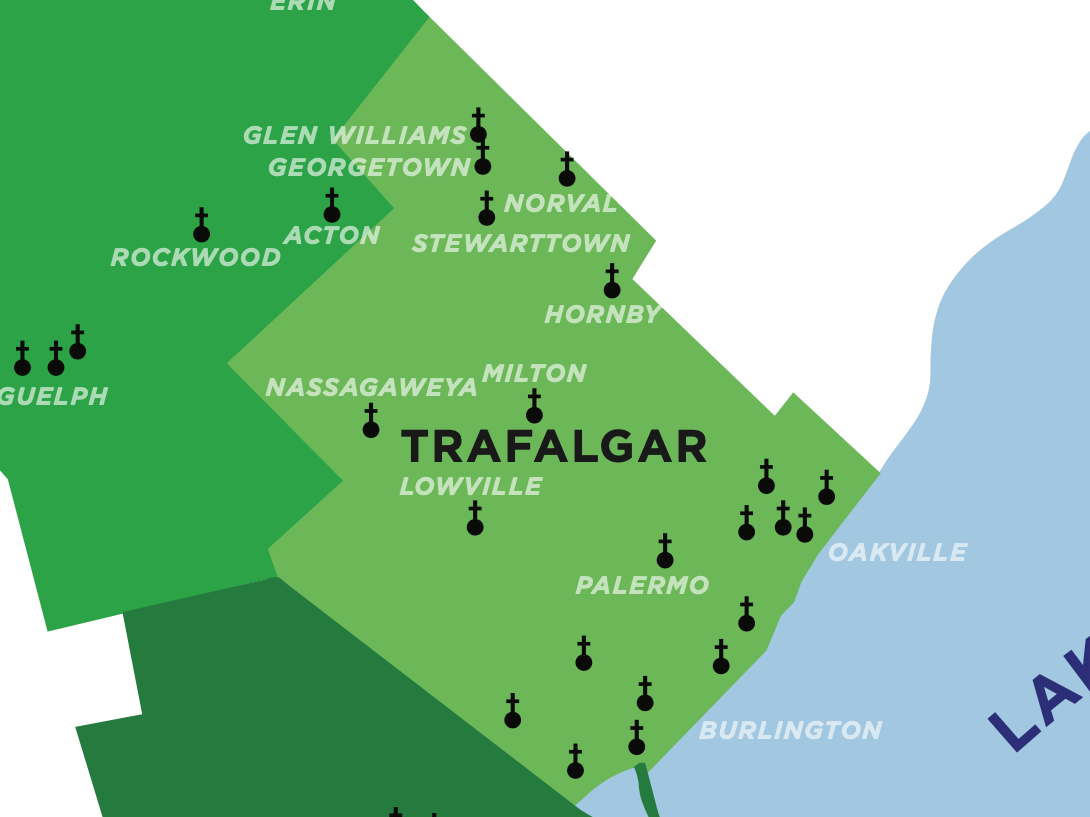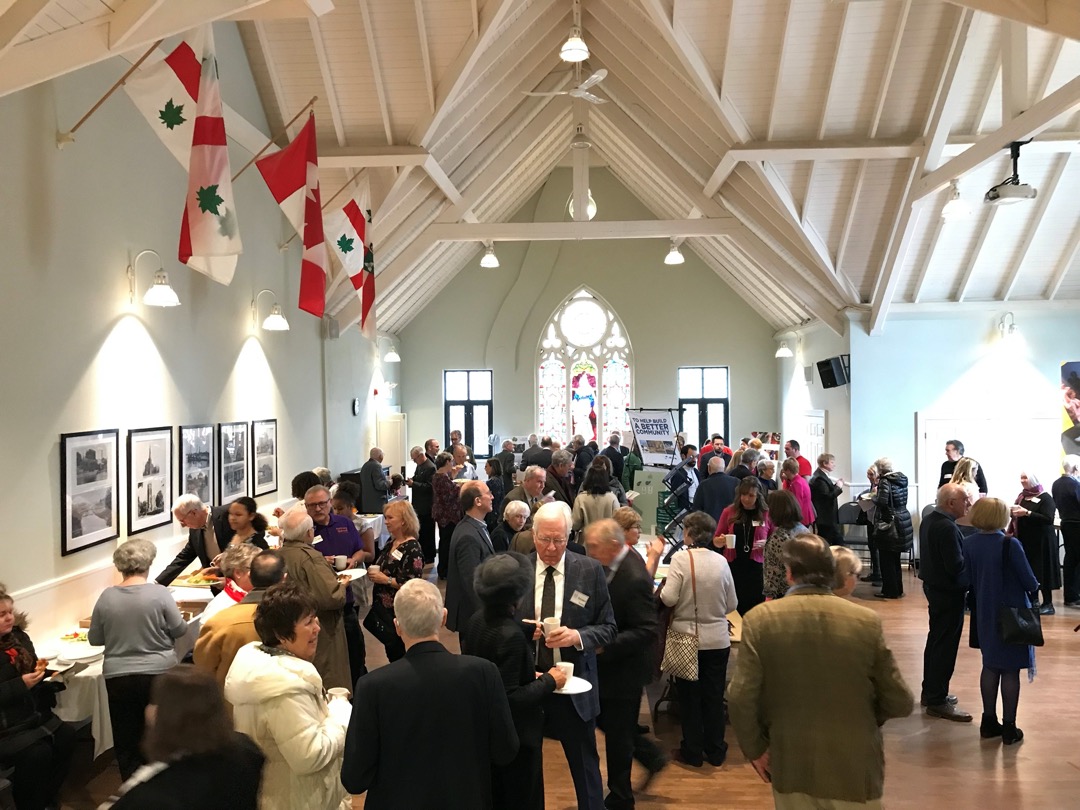On Sunday, January 26, St. Jude’s (Oakville) hosted a hugely successful information/networking event with parishioners and St. Jude’s community outreach partner organizations. St. Jude’s Justice and Servant Ministries offers a wide range of community outreach programs, all designed to help those in the community who are in need.
The purpose of the event was to make parishioners aware of all of the good things happening to help those in need and to strengthen the working relationships with the many folks involved with the various initiatives. Chair of St. Jude’s Justice and Servant Ministries Blair Richardson indicated after the event “relationships with our community partners were definitely strengthened and our fellow parishioners benefitted from the excellent displays and conversations, as well as the lunch, which almost completely disappeared.“
The event was also a wonderful opportunity for St. Jude’s new rector, Mark Andrews to meet informally with representatives from the many different organizations in Halton that are partners in St. Jude’s outreach programs.
Outreach is a true community team effort. Anyone interested in learning about volunteer opportunities should contact Blair Richardson below.
Welcome to Trafalgar Region

The Region of Trafalgar is basically Halton Region and Waterdown. This is the area sandwiched between Hamilton and Mississauga/Brampton and from Lake Ontario in the south to almost Guelph. We embrace the communities of Georgetown (including Glen Williams, Norval, Hornby, Stewarttown), Milton (including Lowville and Nassagaweya), Oakville, Burlington, and Waterdown. There are 21 churches of varying sizes and ages. Halton Region has experienced heavy population growth for more than two decades and it has been projected this will continue for at least another decade.
The current population is approaching 600,000. This is a bedroom community for thousands who daily commute to Toronto for work, filling many GO Trains and associated parking lots and clogging the QEW/403 and 401 highways.
The region has transitioned over time, from a predominantly British, United Empire Loyalist, concentrated set of very separate communities, to interconnected and extremely diverse communities. This has led to many changes of our parish communities; the boundaries, the languages, the food, and the culture, have all become broader and richer.
We may still hold some traditions of worship and ritual events, but we now have many food and music festivals featuring a variety undreamt of only one generation ago. We are home to many newcomers to Canada, including many refugees. We are, whether we like it or not, learning to reach out to people who have no experience in Anglican churches or faith communities of any kind.
All of this is forcing us to rethink how we are church, even in very entrenched parish communities. Mostly, it is forcing us to learn how to communicate our faith to our new neighbours in ways that we didn’t need to in the past. We can no longer take for granted that everyone we meet in the grocery stores, or coffee shops, or parks, or by the lake, even know what we mean when we say the word “church”. We are learning to introduce ourselves, our church, and our faith to people with zero knowledge or experience of Christ or the Anglican church.
We have parishes begun in the 18th, 19th, and 20th centuries and new mission ministries begun in the 21st. We have embarked on efforts of trial and error, seeking to find new (hopefully effective) ways to share who Christ is to us and how it can enrich the lives of others.
This has offered us new challenges for explaining and encouraging the stewardship of time, talent, and treasure.
- for some we are place where they can learn new languages, culture, traditions
- for others we are a place to meet neighbours, learn how to paint, or write, or dance
- and for others we are a place to get help learning how to navigate life in a new land and obtaining the essentials of life, such as food, clothes, and caring for our families even during climate emergencies.
Our region is definitely a field of challenge and opportunity; a place to truly exercise the potential of our new diocesan vision and mission action plan.


Deacons Bench: Your Servant is Listening